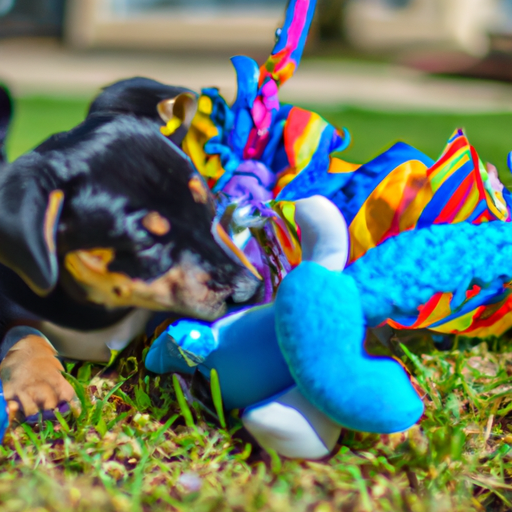Introduction
Congratulations! You’ve just welcomed a 15-week old puppy into your life. This young pup will bring you joy, laughter, and perhaps a few challenges. Whether you’re a seasoned pet owner or a first-timer, this guide will arm you with essential knowledge to provide the best care for your furry friend.
Nourishment
Feeding your puppy appropriately is crucial to their growth and development. A 15-week old puppy needs a balanced diet filled with vital nutrients.
- Protein – Essential for growth and development
- Fats – For energy and healthy skin and coat
- Carbohydrates – For energy and digestion
- Vitamins and Minerals – For various bodily functions
| Meal Times | Frequency |
|---|---|
| Morning | Once |
| Afternoon | Once |
| Evening | Once |
Ensure to maintain a regular feeding schedule. Avoid overfeeding as it can lead to obesity and other health issues.
Training
Training should be an integral part of your puppy’s life at this stage. Here are some essential commands to teach your 15-week old puppy:
- Sit
- Stay
- Down
- Come
- Heel
Remember, patience, consistency, and rewards are key to successful training.
Exercise
Physical activity is vital for your puppy’s health and happiness. It aids in digestion, promotes healthy growth, and prevents destructive behavior. At 15 weeks, your puppy should have at least 30 minutes of exercise daily. This can be in the form of walks, playtime, or training sessions.
Socialization
Your 15-week old puppy is at a prime age for socialization. This is the process of introducing your puppy to new people, animals, environments, and experiences. Socialization helps your puppy to become a well-adjusted and confident adult dog.
Health Check
Your puppy’s health should always be a top priority. At 15 weeks, your puppy should have already received their first set of vaccinations. Here’s a typical vaccination schedule:
| Age | Vaccination |
|---|---|
| 6-8 weeks | Distemper, Parvovirus |
| 10-12 weeks | DHPP (vaccines for distemper, adenovirus, parainfluenza, and parvovirus) |
| 12-24 weeks | Rabies |
Remember to regularly check your puppy for any signs of illness and consult your vet if you have any concerns.
Grooming
Grooming is not just about keeping your puppy clean and looking good. It also promotes good health. Regular brushing keeps the coat free from mats and distributes natural oils evenly across the skin. Start introducing your puppy to nail trimming, ear cleaning, and dental care at this age as well.
Housebreaking
Housebreaking is another important aspect of training. Your 15-week old puppy is capable of learning where and when to eliminate. Consistency, positive reinforcement, and patience are key to successful housebreaking.
FAQ
Q: How much sleep does a 15-week old puppy need?
A: Puppies at this age typically need around 15-20 hours of sleep a day, including nighttime sleep and naps throughout the day.
Q: How much food does a 15-week old puppy require?
A: The amount of food a puppy needs depends on their size, breed, and activity level. As a general guideline, they should be fed 4 times daily with a high-quality puppy food.
Q: My 15-week old puppy is biting a lot. What should I do?
A: Puppies often bite or “mouth” as part of their play and to explore their world. Redirect this behavior towards appropriate chew toys and discourage biting with a firm “No.”
Q: Can a 15-week old puppy be left alone?
A: Puppies at this age can generally be left alone for up to 4 hours during the day. However, they’ll need plenty of interaction and activity when you are home.
With this guide, you’re well on your way to providing the best care for your 15-week old puppy. Remember, every puppy is unique, so adapt these guidelines to suit your puppy’s specific needs. Enjoy this precious stage in your puppy’s life – they grow up fast!



